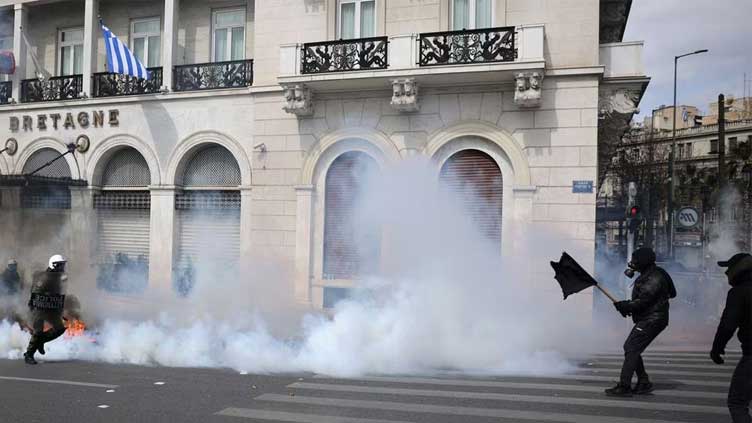Greeks walk off the job to protest over deadly train crash

World
Greeks walk off the job to protest over deadly train crash
ATHENS (Reuters) - Thousands of Greek workers walked off the job on Thursday and rallied in central Athens to protest failures of safety standards they claim helped cause the country's deadliest train crash, which killed 57 people on Feb. 28.
Flights to and from Greece were grounded, ships remained docked at ports, and public services and state schools were closed as workers joined the 24-hour strike called by Greece's largest labour unions, GSEE and ADEDY.
The walkout is the latest in a series of protests since the head-on collision of a passenger train carrying more than 350 people, most of them university students, with a freight train near the city of Larissa in the central Greek region of Tempi.
Protesters accuse the conservative government and the country's political system of turning a blind eye to repeated calls by unions over deficient safety measures in the railway.
"It was not human error, it was crime," read a banner held by protesters rallying peacefully outside parliament in Athens. "Our dead, your profits," read another one.
The government, whose term ends in July, has acknowledged deficiencies due to underinvestment and neglect - a legacy of Greece's decade-long debt crisis - but it has blamed the crash mainly on human error.
Four railway workers have been detained and accused of disrupting public transport leading to deaths.
Since the crash, rail workers have staged rolling strikes demanding that the government takes action to revamp the sector.
Passenger and freight services have been halted since March 1. Urban transport was also disrupted on Thursday as metro staff held work stoppages and taxi drivers joined the walkout.
PUBLIC OUTRAGE
People laid flowers and candles at the Athens central train station.
"We want safe railways that operate," the head of a railway workers union Nikos Tsikalakis told state television.
A judicial probe into the crash has been launched and the government has set up a committee which is also looking into the case. Unions demand a fast and thorough investigation into the causes of the crash.
"We will not allow a lack of transparency, a cover-up, a renunciation of responsibilities and any delays to lead to oblivion," private sector union GSEE said in a statement.
The crash has stirred public outrage against consecutive governments over the past decade which have pushed back a plan to install safety systems across the country's 2,500-km (1,550-mile) rail network.
Last week, tens of thousands rallied in Athens and other cities across Greece in the largest street demonstrations the government has faced since being elected in 2019.
"The culprits must pay regardless of their rank," read a poster by public sector union ADEDY.
Prime Minister Kyriakos Mitsotakis has apologised over the crash and has promised to hire more staff and fix the rail sector with support from the European Union. He has also called on protesters not to allow anger to split society.
"Measures should have been taken a long time ago and (they should not be) waiting for an accident to happen to take them," said 33-year old taxi driver Theodoros Dokos. "Whatever the measures are, they do not appease the pain of the people."

